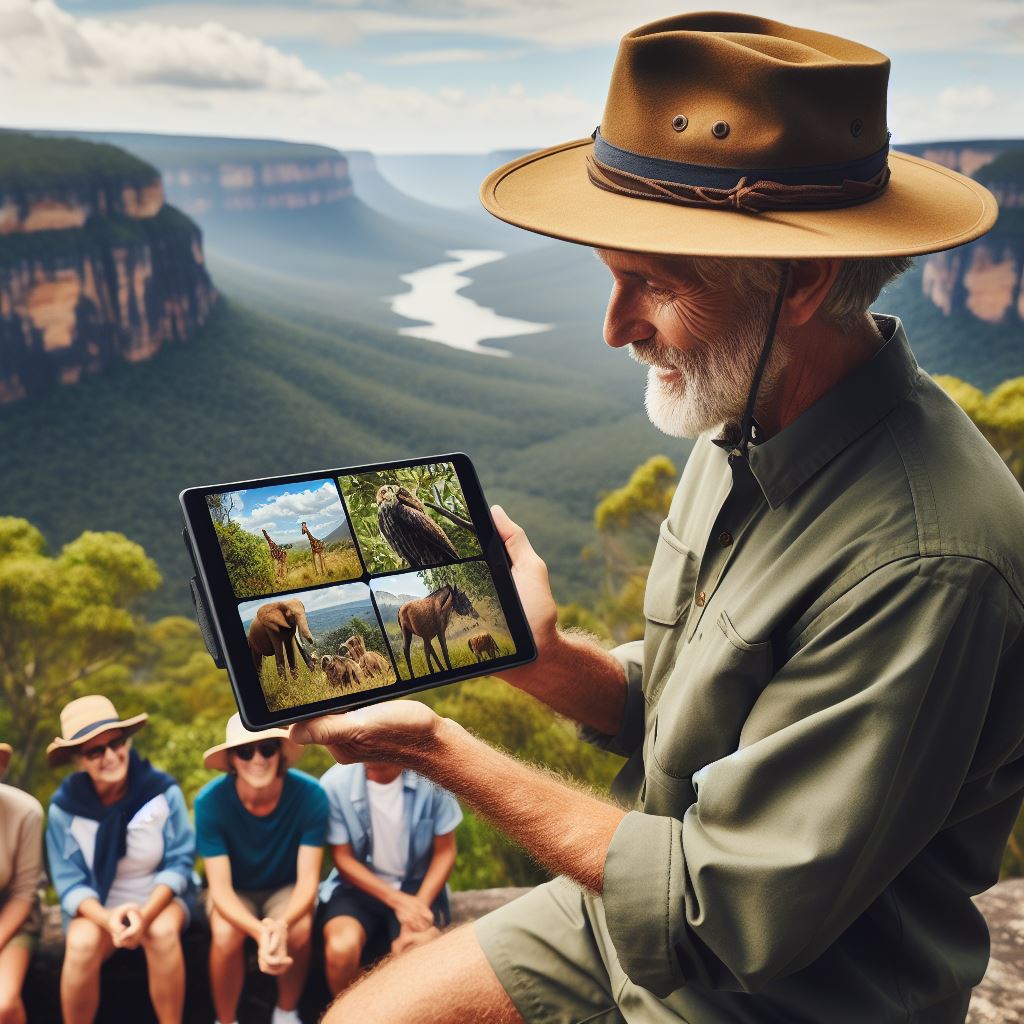Introduction
In the realm of tourism, cultural sensitivity emerges as a guiding principle, fostering enriching experiences and harmonious interactions between visitors and locals.
As we embark on this exploration, it is imperative to grasp the essence of cultural sensitivity, an active and respectful engagement with diverse customs, traditions, and beliefs.
Cultural sensitivity involves a profound awareness and understanding of the unique cultural nuances that define a community.
It transcends mere acknowledgment, requiring active efforts to comprehend and respect the values and practices of the cultures encountered during travels.
It is an ongoing process that involves adaptability and an open-minded approach to bridge cultural gaps.
In the context of Australian tours, cultural sensitivity takes center stage as a linchpin for fostering positive interactions and meaningful connections.
Australia, with its rich Indigenous heritage and multicultural fabric, beckons tourists to navigate its diverse landscapes with a heightened awareness of cultural differences.
This not only ensures a more immersive and authentic travel experience but also contributes to the preservation and appreciation of Australia’s unique cultural tapestry.
This blog post serves as a beacon, illuminating the significance of cultural sensitivity in the context of Australian tours.
We delve into practical insights, shedding light on how travelers can actively embrace and incorporate cultural sensitivity into their journeys.
From understanding Indigenous perspectives to navigating cultural etiquettes, this exploration aims to equip readers with the tools to forge genuine connections and leave a positive impact on the communities they encounter.
Join us in unraveling the threads of cultural sensitivity that weave through the vibrant fabric of Australian tourism, as we navigate the dynamic intersection between travel, respect, and cultural understanding.
Understanding Different Cultures in Australia
Understanding and appreciating different cultures is crucial in creating an inclusive and enriching Australian tour experience.
As tour operators and participants, it is essential to approach cultural diversity with an open mind, embracing the opportunity to learn and share unique perspectives.
Acknowledging the diversity of cultures in Australia
- Australia is a multicultural nation, with a rich diversity of cultures and ethnic backgrounds.
- The Aboriginal and Torres Strait Islander cultures are the oldest surviving cultures in the world.
- Australia’s population is also made up of immigrant communities from various countries.
Brief overview of different cultural groups in Australia
- Aboriginal and Torres Strait Islander cultures have a deep connection to the land and have unique customs and traditions.
- Australia has a significant migrant population, including people from European, Asian, African, and Middle Eastern backgrounds.
- Some major cultural groups in Australia include Chinese, Indian, Greek, Italian, Lebanese, Vietnamese, and Sudanese communities.
By acknowledging the diversity of cultures in Australia, including the indigenous communities and various immigrant groups, we can foster a more inclusive environment for all.
It is important to recognize and respect cultural differences, avoiding any stereotypes or biases that may hinder genuine understanding.
Potential challenges in understanding different cultures
- Language barriers can pose challenges while interacting with individuals from diverse cultural backgrounds.
- Cultural norms and values may differ, which can lead to misunderstandings if not approached with sensitivity.
- Stereotypes and biases can hinder the understanding and appreciation of different cultures in Australian tours.
While challenges may arise due to language barriers, different cultural practices, or limited contextual knowledge, these can be overcome through education, awareness, and a willingness to adapt.
Investing time in learning about different cultures, engaging in cultural exchange programs, and seeking guidance from local experts can greatly enhance our understanding and sensitivity towards various cultural groups.
Challenges in understanding different cultures
- Communication barriers due to language differences
- Misinterpretation of cultural norms and practices
- Stereotyping and bias towards certain cultural groups
- Difficulty understanding the historical and social context of different cultures
- Challenges in adapting to different cultural etiquettes and customs
Strategies to promote cultural sensitivity
- Investing time and effort in learning about different cultural backgrounds
- Respecting and valuing cultural diversity
- Adapting communication styles to accommodate language differences
- Avoiding stereotypes and generalizations
- Engaging in cultural exchange programs and activities
- Seeking guidance from local cultural experts in organizing Australian tours
- Encouraging open-mindedness and tolerance among tour participants
Strategies promoting cultural sensitivity encompass respecting diversity, adapting communication styles, avoiding stereotypes, and fostering open-mindedness.
By embracing these strategies, we can create an environment where everyone feels valued and included, irrespective of their cultural background.
In essence, understanding different cultures in Australia is vital for cultural sensitivity in Australian tours.
By acknowledging the diversity of cultures, gaining knowledge of various cultural groups, and addressing potential challenges, we can promote inclusivity, appreciation, and respect throughout the tour experience.
Embracing cultural diversity enhances the overall experience for all participants and fosters a more harmonious and inclusive society.
Read: The Rise of Female Chefs in Australia’s Kitchens
Benefits of Cultural Sensitivity in Australian Tours
When tour operators prioritize cultural sensitivity, it brings numerous advantages to both tourists and the reputation of the company.
Enhanced customer experience and satisfaction
- Tourists feel more welcomed and respected when they encounter cultural sensitivity during their Australian tours.
- By engaging with and respecting diverse cultures, tour operators create a positive and inclusive environment.
- Cultural sensitivity enables tourists to connect deeply with their surroundings and develop a genuine understanding.
- When tourists have meaningful interactions with different cultures, it enhances their overall travel experience.
- Tour operators that prioritize cultural sensitivity are likely to receive positive feedback and recommendations from satisfied customers.
Positive impact on the reputation of tour operators
- Having a reputation for cultural sensitivity sets tour operators apart and attracts a wider range of customers.
- Word-of-mouth recommendations play a crucial role in the success of tour operators, and cultural sensitivity encourages positive reviews.
- Tour operators who prioritize cultural sensitivity are seen as socially responsible and trustworthy.
- It helps tour operators build stronger relationships with local communities and gain their support.
- A positive reputation for cultural sensitivity can lead to partnerships and collaborations with other stakeholders in the tourism industry.
Increased understanding and appreciation of diverse cultures
- Cultural sensitivity in Australian tours encourages tourists to embrace and learn from different cultural traditions.
- Exposure to diverse cultures during tours helps break down stereotypes and promotes a more inclusive society.
- Tourists develop a deeper appreciation for the customs, history, and values of various cultural communities.
- By fostering understanding, cultural sensitivity contributes to reducing prejudice and promoting harmony among different groups.
- Increased appreciation for diverse cultures leads to a more enriching travel experience and a broader worldview for tourists.
In short, cultural sensitivity in Australian tours brings a range of benefits, including enhanced customer experience and satisfaction, positive impact on tour operators’ reputation, and increased understanding and appreciation of diverse cultures.
Prioritizing cultural sensitivity not only creates memorable experiences for tourists but also contributes to a more inclusive and harmonious society.
Read: Eco-Friendly Travel: Agents Leading the Way
Tips for Culturally Sensitive Australian Tours
Research and education about various cultural practices
- Conduct thorough research on the cultural practices of the communities you will be visiting.
- Learn about their customs, traditions, values, and beliefs as it will help you better understand and appreciate their culture.
- Be aware of any sensitive topics or gestures that might be offensive or disrespectful to the locals.
- Stay updated on the latest cultural information, as practices may change over time.
Engaging with local communities and cultural experts
- Establish connections with the local communities and seek their guidance.
- Engage with cultural experts, such as historians, anthropologists, or local guides, who can provide insights and interpretations.
- Attend cultural events, workshops, or performances to immerse yourself in the local traditions.
- Show genuine interest and respect while interacting with locals, and be open to learning from them.
Providing information and resources to tourists about cultural norms and practices
- Create informative brochures, guidebooks, or online resources that highlight cultural etiquette and practices.
- Include information on appropriate clothing, greetings, taboos, and common expressions in the local language.
- Educate tourists about the importance of respecting cultural differences and encourage them to do their research before visiting.
- Train tour guides and staff to promote culturally sensitive behavior and address any queries or concerns from tourists.
Culturally sensitive Australian tours foster respect, understanding, and appreciation for the diverse communities and traditions found in this vibrant country.
By following these tips, you can ensure that your tours provide enriching experiences while honoring the cultural heritage of Australia’s First Nations and multicultural population.
Read: Salary Guide: Travel Agents in Australia

Uncover the Details: Diversity in Hospitality: Hotel Management
Gain More Insights: Creating an Impressive Bartender Resume
Case Studies: Examples of Culturally Insensitive Tours
Description of specific tour incidents that violated cultural sensitivity
- During a heritage tour, a tour guide made inappropriate jokes about Aboriginal culture.
- In a food tour, the tour operator served pork to Muslim participants without providing any alternative.
- On a wildlife tour, visitors were allowed to touch and harass animals, disregarding indigenous beliefs of respecting wildlife.
- During a city tour, the tour guide made offensive comments about Asian tourists, perpetuating stereotypes.
- In a cultural immersion tour, participants were required to don traditional clothing without understanding its significance.
Impact of these incidents on the reputation of tour operators
- Negative reviews and word-of-mouth publicity, leading to a decline in bookings and revenue.
- Loss of trust and credibility among potential customers, resulting in a damaged brand image.
- Legal consequences due to complaints filed by offended participants.
- Negative press coverage highlighting the insensitivity, impacting the overall reputation of the tour operator.
Lessons learned and importance of avoiding cultural insensitivity
- Educate tour guides and operators about cultural diversity and sensitivity to avoid offensive behaviors.
- Understand and respect the traditions, customs, and beliefs of the communities being visited.
- Offer diverse and inclusive experiences that cater to the needs and preferences of different cultural groups.
- Train tour guides to effectively communicate and interact with participants from various cultural backgrounds.
- Implement clear guidelines and policies regarding cultural sensitivity to ensure responsible tourism practices.
By sharing these case studies, we aim to emphasize the importance of cultural sensitivity in Australian tours.
It is crucial for tour operators to recognize and avoid behaviors that violate cultural sensitivity in order to maintain a positive reputation, preserve cultural heritage, and provide enriching experiences for all participants.
Your Personalized Career Strategy
Unlock your potential with tailored career consulting. Get clear, actionable steps designed for your success. Start now!
Get StartedRead: Travel Agents: The Future in Aussie Tourism
Explore Further: Event Coordinators: Skills You Need in 2024!
Strategies for Overcoming Cultural Barriers in Australian Tours
Effective communication with tourists from different cultural backgrounds
- Develop language skills of tour guides to facilitate clear and concise communication.
- Use visual aids and simple gestures to convey information effectively to tourists.
- Encourage active listening and create an environment where tourists feel comfortable asking questions.
- Provide translation services or multilingual materials to cater to diverse language needs.
- Practice cultural awareness and avoid using jargon or colloquial expressions that may confuse tourists.
Adapting tour itineraries and activities to respect cultural needs
- Conduct thorough research on the cultural customs and practices of target tourist groups.
- Consult with local cultural experts to gain insights and ensure appropriately planned activities.
- Be flexible and open to modifying tour itineraries based on specific cultural requirements.
- Consider dietary restrictions and provide a variety of food options to accommodate different preferences.
- Show sensitivity to religious practices, dress codes, and respectful behavior in sacred sites.
Training and educating tour guides and staff on cultural sensitivity
- Organize regular cultural sensitivity training sessions for tour guides and staff members.
- Provide historical and contemporary information about various cultural groups visitors may encounter.
- Encourage an attitude of respect, curiosity, and acceptance toward different cultural backgrounds.
- Share case studies and real-life examples to enhance understanding of cultural nuances.
- Promote self-awareness of biases, stereotypes, and assumptions that may hinder effective communication.
In general, ensuring cultural sensitivity in Australian tours requires a proactive approach to overcome barriers.
Effective communication, adaptation of itineraries, and continuous training are key strategies that empower tourism operators to provide exceptional experiences that respect and embrace diverse cultural backgrounds.
By implementing these strategies, Australian tours can promote a more welcoming and inclusive environment for tourists from all over the world.
Learn More: Eco-Friendly Practices in Hotel Management
Conclusion
In summary, cultural sensitivity is of utmost importance in Australian tours. By being aware and respectful of different cultures, we can create a more enriching and inclusive travel experience for everyone.
It is crucial for tour operators to educate themselves and their staff about cultural practices and norms to avoid any unintentional offense. By doing so, they can ensure that their tours are respectful and enjoyable for all participants.
Similarly, tourists should take the initiative to learn about the local customs, traditions, and social etiquette before embarking on their Australian journey. This will not only enhance their own travel experience but also foster positive interactions with locals.
We must prioritize cultural understanding and respect, as it promotes tolerance, appreciation, and acceptance of diversity. By valuing and embracing different cultures, we can create a more inclusive and harmonious society.
In closing, it is our collective responsibility to promote cultural sensitivity in Australian tours. Only through open-mindedness and understanding can we bridge cultural gaps and create a world where diversity is truly celebrated.
Join us in our call to action – let us strive to be culturally sensitive travelers and tour operators, shaping a future of inclusivity and cultural exchange in the Australian tourism industry.




